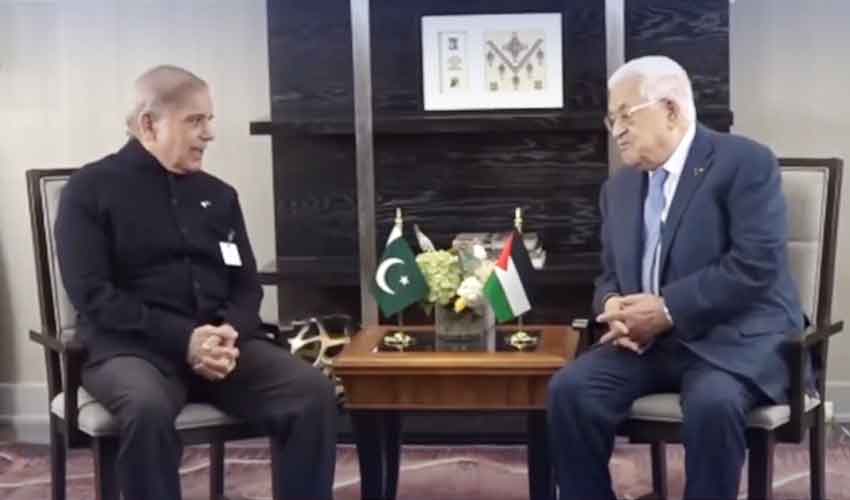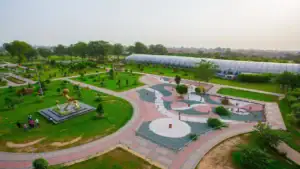Islamabad, Sep 26: On Thursday, Prime Minister Shehbaz Sharif strongly condemned the ongoing atrocities committed by Israeli forces against the Palestinian people.
Speaking alongside Palestinian President Mahmoud Abbas at the 79th Session of the United Nations General Assembly (UNGA), Sharif urged the international community to unite in demanding an immediate ceasefire and the establishment of an independent state of Palestine.
Urgent Call for Action
Sharif emphasized that peace in the region hinges on global efforts to support the creation of a Palestinian state. He stated, “The time has come when we all must come together and demand an immediate ceasefire and the creation of the State of Palestine. Without that, peace will not return to this part of the world.”
Highlighting the severe humanitarian crisis, Sharif expressed outrage at the loss of life, noting that over 41,000 Palestinians had been killed in the past year. He described the destruction of cities, schools, and hospitals as acts of genocide, affirming Pakistan’s solidarity with the Palestinian people.
Acknowledgment of Resilience
Sharif praised the resilience and bravery of the Palestinian people, assuring them that their sacrifices would ultimately lead to the establishment of a Palestinian state. “Their bravery will result in the eventual creation of the State of Palestine,” he affirmed.
Pakistan’s Longstanding Support
Palestinian President Mahmoud Abbas acknowledged Pakistan’s enduring support for the Palestinian cause, dating back to before 1948. He noted that Pakistan’s commitment extends beyond diplomatic support to include humanitarian assistance at international forums.
Call for UN Sanctions Against Israel
During a previous session at the UN Security Council, Sharif called for sanctions against Israel, including an arms and trade embargo, for its actions in Gaza. He stated, “We must compel Israel to halt its genocidal war in Gaza and prevent its attempts to provoke a wider conflict in the Middle East.”
Sharif also condemned Israeli bombings in Lebanon, demanding accountability for crimes against both Palestinian and Lebanese civilians. He called for an impartial plan from the Security Council for a ceasefire and a peaceful resolution to the conflict.
Addressing Global Challenges
Beyond the Gaza conflict, Sharif raised other critical issues at the UN, including the Kashmir conflict. He urged the Security Council to implement resolutions for a plebiscite in Jammu and Kashmir, emphasizing the threat it poses to international peace.
Additionally, he highlighted the resurgence of terrorism, particularly from Afghanistan, and called for increased support for African nations facing foreign interventions.
Economic Discussions
During his time at the UN, Sharif held discussions with financial institutions like the International Monetary Fund (IMF) and the World Bank. He expressed gratitude for the recent approval of Pakistan’s IMF program, underscoring the need for unity to ensure its success.
Sharif noted that the IMF delegation recognized his government’s efforts and expressed optimism for future cooperation with the World Bank.
In conclusion, Sharif condemned the ongoing violence in Gaza as “the worst massacre in history” and reiterated the necessity for immediate international action to achieve a ceasefire.









